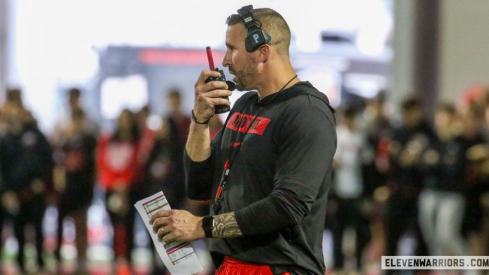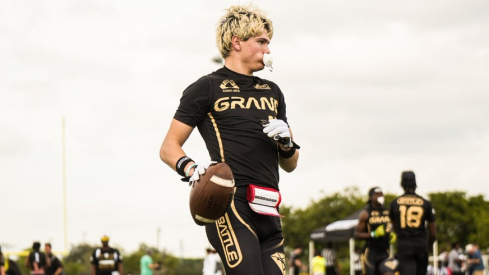UPDATE (2:40 p.m.): Gene Smith says recent information made him switch. He is now open to exploring game length.
Alabama and Clemson's Monday night tilt was the longest college football championship game since 1998. Many saw it as an instant classic rivaling Texas–Southern California in the 2006 Rose Bowl.
Ratings, however, disappointed. This led to a flurry of takes this week about "how to fix college football." Ideas ranged from practical ideas like removing the time stoppage after first downs to pipe dreams like reducing commercials.
But Gene Smith would apparently disagree with the notion games should be shortened. Here's what he once told CBS Sports reporter Dennis Dodd:
Who beyond media cares about game length? Gene Smith once told me, OSU fans show up at 5am for 3:30 games, and they dont leave early."
— Dennis Dodd (@dennisdoddcbs) January 13, 2017
Who else cares about game length besides media? Advertisers, for one.
Sure, a couple hundred thousand people will tailgate a 3:30 game against Indiana for 24 hours. There are only a handful of schools like that in the country, though, and those in attendance aren't the target audience for which advertisers pay the big bucks.
Most Americans can't set aside four hours on a weeknight to watch two teams they ultimately don't care about until well after midnight. I did, but I'm a 30-year-old blogger with no kids whose morning commute is walking from bed to kitchen.
If this is an opinion Smith carries today. It would seem he's in the minority among college football leadership.
From espn.com:
"I would like to see shorter games," Pac-12 commissioner Larry Scott said.
[...]
"Fundamentally, we have to have that conversation," SEC commissioner Greg Sankey said. "We need a bit more consistency [on length of games]. There are a lot of ideas that merit discussion, such as [shortening] halftime, but I think we should be careful with that."
[...]
"Staying under 3:25 is an appropriate aspiration," [Big 12 commissioner Bob] Bowlsby said.
Networks just paid out record amounts for broadcasting rights to power conferences. That spending wasn't a whimsical gamble. The numbers were ruthlessly negotiated, and FOX, ESPN, etc. will get their profits. So don't expect commercials to be peeled back.
Coaches hate change unless it benefits them (like adding a 10th full-time assistant coach), so they would probably resist removing the time stoppage after first downs. After all, it's additional time to strategize.
But if this is an issue college football leadership wants to tackle, removing the stoppage is the most practical path.
According to ESPN, the NCAA's Football Oversight Committee is expected to discuss this issue "in a couple of weeks."

